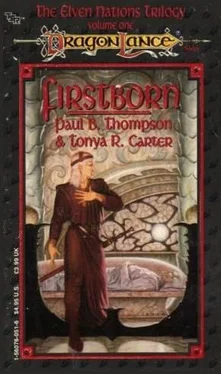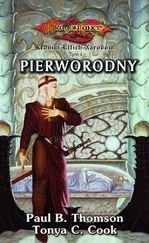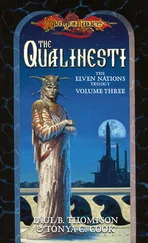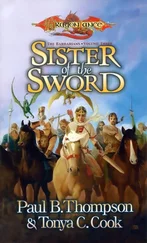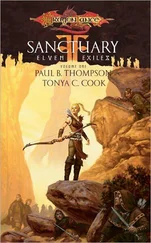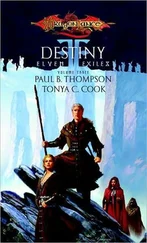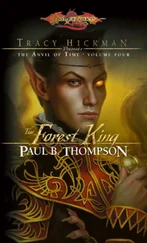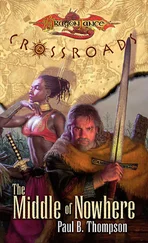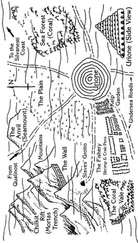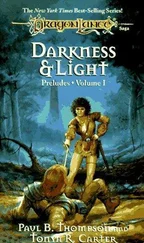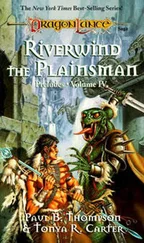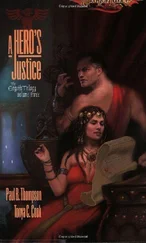Paul Thompson - Firstborn
Здесь есть возможность читать онлайн «Paul Thompson - Firstborn» весь текст электронной книги совершенно бесплатно (целиком полную версию без сокращений). В некоторых случаях можно слушать аудио, скачать через торрент в формате fb2 и присутствует краткое содержание. Жанр: Фэнтези, на английском языке. Описание произведения, (предисловие) а так же отзывы посетителей доступны на портале библиотеки ЛибКат.
- Название:Firstborn
- Автор:
- Жанр:
- Год:неизвестен
- ISBN:нет данных
- Рейтинг книги:3 / 5. Голосов: 1
-
Избранное:Добавить в избранное
- Отзывы:
-
Ваша оценка:
- 60
- 1
- 2
- 3
- 4
- 5
Firstborn: краткое содержание, описание и аннотация
Предлагаем к чтению аннотацию, описание, краткое содержание или предисловие (зависит от того, что написал сам автор книги «Firstborn»). Если вы не нашли необходимую информацию о книге — напишите в комментариях, мы постараемся отыскать её.
Firstborn — читать онлайн бесплатно полную книгу (весь текст) целиком
Ниже представлен текст книги, разбитый по страницам. Система сохранения места последней прочитанной страницы, позволяет с удобством читать онлайн бесплатно книгу «Firstborn», без необходимости каждый раз заново искать на чём Вы остановились. Поставьте закладку, и сможете в любой момент перейти на страницу, на которой закончили чтение.
Интервал:
Закладка:
“I’ll tell, I’ll tell!” babbled the terrified elf. Kith-Kanan threw him to the ground. The light from the fireball suddenly grew more intense. The elf let out a scream and threw an arm over his face. Kith-Kanan turned in time to see the fiery globe come hurtling at them. As he leaped aside, the fireball hit the wounded elf. There was a thunderclap, and the globe exploded.
Slowly, sight and hearing returned to Kith-Kanan, and darkness reclaimed the camp. The prince raised his head and found that his right arm and leg were scorched from the fireball’s impact. The wounded elf was gone, vaporized.
Mackeli was buried in a simple grave on the banks of the Khalkist River. The Wildrunners laid his sword across his chest, as was the custom with elven warriors. At the head of his grave, in lieu of a marker, Kith-Kanan planted the sprig of oak he’d snipped from Anaya’s tree. All this time it had remained green. The prince was certain the sprig would grow into a fine tree, and that Mackeli and Anaya would be united somehow in renewed life once more.
As the camp was breaking up, Kith-Kanan fingered the small ring he now wore on his left little finger. This was the ring Silvanos had given to his great general Balif during the Dragon War. Sithel had passed the ring on to his son as a parting gift; it had been wrapped in the red silk handkerchief the speaker had passed to his son. Kith-Kanan had donned the ring with pride, but now he wondered if it was an unintentional portent of tragedy. After all, Balif had been murdered by his rivals, certain high-ranking elves who resented the kender’s influence with Silvanos. Now similar treachery had struck at Kith-Kanan and had taken his young friend.
With somber diligence the Wildrunners struck their tents. When they were done, the senior captain, a Kagonesti named Piradon, came to Kith-Kanan.
“Highness, all is ready,” he announced.
Kith-Kanan studied the captain’s face. Like all the Kagonesti who served in the royal guard, Piradon did not wear skin paint. It made his face seem naked.
“Very well,” he said flatly. “The usual columns of four, and I want outriders ahead, behind, and on both flanks. No one’s going to surprise us again.”
Kith-Kanan put a foot in his stirrup and swung a leg over his horse. He slapped the reins against his horse’s rump and cantered down to the road. The golden ring of Balif felt tight on his finger, making his pulse throb in his fingertip. The prince decided then that the feeling would stand as a constant reminder of Mackeli’s death and of his own vulnerability.
27 — High Summer, Year of the Ram
Deprived of Anaya and bereft of Mackeli, Kith-Kanan threw himself into his duty with a will that would have astonished those who had known him as a callow, self-centered youth. He drove his warriors as hard as he drove himself, and in weeks molded them into a quick-thinking, quick-acting force.
Two months passed. High summer came to the plain, and the days grew very hot. Daily thunderstorms soaked the steaming plains and green forest, quenching the thirsty land so bursting with life. Grass grew on the plain as tall as a grown elf’s shoulder; so tall, in fact, that the herders had to cut swaths through it with scythes twice weekly. Vines and bracken choked the paths in the forest, making travel difficult, but the Wildrunners were too busy to complain. Tall mountains of clouds, like castles of white smoke, passed serenely overhead as the Wildrunners set up camp in order to construct a new armory; one Kith-Kanan had already dubbed Sithelbec.
Militia outposts like the one under construction had been established all across the plain in the past eight weeks, and settlers of every race flocked to their standards. Humans, elves, kender, dwarves—they were all tired of being victims, subject to the whims of the roving robbers. The captains and sergeants of the Wildrunners drilled them with pikes and shields, and showed them how to stand up to the mounted brigands. Everywhere Kith-Kanan’s force stopped, an armory was founded. Stout stone houses were built by the Wildrunners, and there all the militia’s weapons were stored. At the sounding of a gong, all able-bodied people in the locale would rush to the arsenal and arm themselves. In an attack, the Wildrunner officers stationed close at hand would lead them out to repel the raiders.
By a few weeks before midsummer, the south and central plains had been pacified. In most cases, the brigands hadn’t even stayed around to fight the new militia. They’d simply vanished. Parnigar, eldest of the sergeants, had pronounced himself dissatisfied with the results of the campaign, however.
“What fault can you find?” Kith-Kanan had asked his trusted aide, the closest person to him since Mackeli’s death. “I’d say we were succeeding far better than we could have hoped.”
“Aye, that’s the problem, sir. The brigands have given up too easily. They’ve scarcely tried to test us,” Parnigar countered.
“Just shows that thieves have no stomach for honest combat.” The old soldier nodded politely, but it was plain he had not been convinced.
The construction of Sithelbec began with a stockade of logs around the inner blockhouse of stone. Here, at the edge of the western forest, Kith-Kanan planned to extend law and order.
Inside the forest, however, was a different proposition. There were many elves of the Kagonesti race living in the woods, but they were hardy and independent and did not take kindly to armed soldiers on their land. These woods elves got along much better with their human neighbors than they did with the Kagonesti under Kith-Kanan’s command. Worse, the western woods elves scorned the prince’s offers of protection.
“Who do we need protection from?” they had asked scornfully when confronted. “The only invaders we see are you.”
The woods elves spat on Kith-Kanan’s representatives or threw stones at them, then melted into the trees.
The Wildrunners were all for going into the forest and converting the stubborn woods elves at the point of a sword, but Kith-Kanan would not allow it. Their success was built upon the trust the common people had in them; if they turned tyrannical, everything they’d accomplished would be for naught. It would take time, but the prince believed that he could even win over the wild Kagonesti.
As work on Sithelbec continued, Kith-Kanan received a dispatch from his father. The Speaker of the Stars had accepted the prince’s invitation to the outpost. Sithel was coming, accompanied by Sithas and a caravan of guards and courtiers.
Kith-Kanan studied the dispatch, penned by his twin. The speaker’s retinue was large and slow-moving; it would be at least two weeks before they reached Sithelbec. Even with that grace period, the fortress would not be finished in time. Kith-Kanan exhorted his warriors to do their best, but to save their strength for fighting—even though bandits were becoming as rare as cool breezes in the hot and steamy summer nights.
The work was still unfinished when the banner of the speaker’s party appeared on the horizon. Kith-Kanan called in all his patrols and formed his warriors before the gates of Sithelbec.
The Wildrunners looked on in awe as the speaker’s party came into view. First came forty guards on horseback, armed with long lances. Pennants fluttered from their lance tips. Behind them came an honor guard of nobles, sixty-two of them, bearing the banners of Silvanos’s clan, the city of Silvanost, the great temples, the major guilds, and the lesser towns of Silvanesti. The nobles formed a square behind the line of lancers. Next came Sithas and his entourage, all clad in scarlet and white. Finally, the Speaker of the Stars rode up, flanked by one hundred courtiers wearing the speaker’s colors. The tail of the procession consisted of the rest of the guards and all the baggage wagons.
Читать дальшеИнтервал:
Закладка:
Похожие книги на «Firstborn»
Представляем Вашему вниманию похожие книги на «Firstborn» списком для выбора. Мы отобрали схожую по названию и смыслу литературу в надежде предоставить читателям больше вариантов отыскать новые, интересные, ещё непрочитанные произведения.
Обсуждение, отзывы о книге «Firstborn» и просто собственные мнения читателей. Оставьте ваши комментарии, напишите, что Вы думаете о произведении, его смысле или главных героях. Укажите что конкретно понравилось, а что нет, и почему Вы так считаете.
